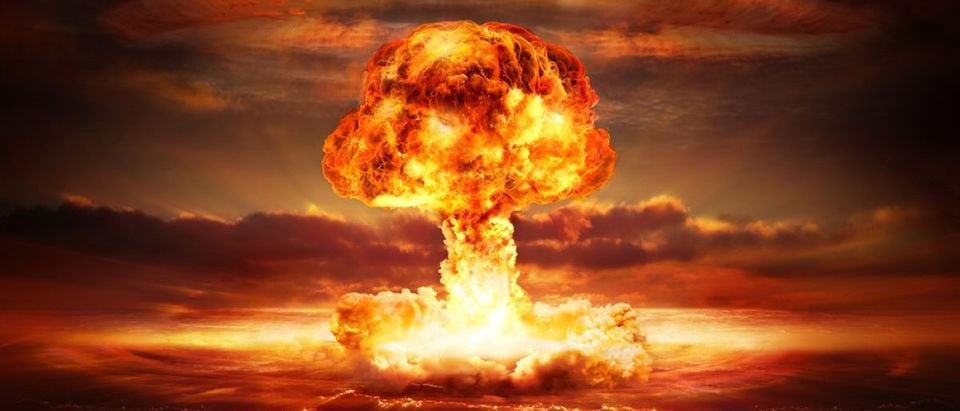On Thursday afternoon, the Armed Services and the Strategic Forces subcommittee met to discuss the status of U.S. nuclear deterrents and options to modernize the current arsenal.
A panel of four testified to members of Congress, expressing concern that current U.S. nuclear technology is debilitatingly outdated and the aging infrastructure poses a massive threat to national security and the ability to deter adversaries from engaging in warfare.
Intel suggests that countries including China, Russia and North Korea are currently modernizing nuclear weaponry. The panel argued that the U.S. must modernize as well in order to reinforce perceptions of America as a strong military power.
“The real key to deterrence is the perception of your adversary,” said Adm. Cecil Haney, commander of U.S. Strategic Command. “An adversary has to understand that you have…ready and reliable and credible capability. Anything that detracts from that perception will cause that adversary to think that they may be able to do something.”
“We cannot afford that in terms of nuclear weapons, given the existential threat they would impose upon our way of life and our country.”
In addition to Adm. Haney, the panel included Hon. Frank Klotz, Administrator for the National Nuclear Security Administration, Gen. Robin Rand, commander of Air Force Global Strike Command, and Hon. Robert Scher, Assistant Secretary of Defense for Strategy, Plans, and Capabilities, Department of Defense.
“The nuclear deterrent is a foundational capability of U.S. national security,” said Hon. Klotz. “Our nuclear enterprise continues to play an essential role in preventing conflict and deterring attacks upon the United States, our armed forces and our allies and friends in an increasingly complex and unpredictable international environment.”
“We must therefore maintain nuclear deterrent capabilities not only for ourselves, but also for our allies and partners around the world,” he concluded. “As NATO reaffirmed last week, ‘the strategic forces of the alliance–particularly those of the U.S.–are the supreme guarantee of the security of the allies.’”
This is especially true as NATO countries have been the target of multiple terrorists and ISIS attacks. (RELATED: Former Obama Intel Chief: ‘We Are Losing’ Against ISIS, ‘We’re In A War’)
The effect of modernizing nuclear technology and weaponry would assure allies that they do not need their own nuclear capabilities. Modernization would also serve to deter other countries from engaging in warfare with the U.S., as well as deterring “escalation to de-escalation.” A country may choose to engage in nuclear warfare if they are losing a conflict to escalate their way out of crisis and force surrender.
For example, there is intel that Russia may be considering these strategies and training in nuclear warfare in an increased manner.
“It is concerning to see that the Russians are clearly continuing to look at nuclear weapons as a clear and important part of their arsenal and they are building it up both in size and type… they have violated the INF treaty for example,” said Hon. Scher.
The panel has claimed that some of the current U.S. technology is over 30 years old.
“We have to modernize,” says Adm. Haney “We can ill afford to wait longer–we are to the point where we have delayed…We are now in a point where reliability and survivability will be at risk, and hence deterrence and assurance to our allies will be in question”
According to Hon Scher. the cost of modernization is estimated to between $350-450 billion over the next 20 years.
“While not a small amount of money, the total defense budget in fiscal year 2016 alone was over 580 billion,” said Hon. Scher. “The cost of nuclear modernization is substantial, but it is not unreasonable for what Secretary Carter has called the ‘bedrock of our security.’”
Gen. Rand confirmed that this would be a small price to pay for security in an increasingly unstable and fatal landscape. “I am acutely aware of the cost,” he said “I have two legs of the triad that I am responsible for. They are old. They are wearing out and if I am asked to provide forces to do a mission, I have to be candid and tell you I cannot do it with existing capabilities because they are not reliable or they will not be survivable.”
“Claims that US modernization signals a nuclear arms build up or a renewed arms race do not fairly characterize our activities,” said Hon. Scher. “Recapitalizing the triad will preserve existing military capabilities for preventing both large-scale and limited nuclear attacks. To deter massive nuclear attack the U.S. must maintain a force that is invulnerable to disarming a first-strike.”
Mainly Republican members of congress attended the meeting, as Rep. John Garamendi (D-CA) pointed out, suggesting that it was unfair the Democratic side had less time for questions as a result.
“Let me congratulate you and your staff and your members for putting together a terrific show,” said Rep. Garamendi. “One-sided to be sure–and the kind of questions that the American public should be asking, including questions about cost.”
“Mr. Scher you were the most disingenuous representative of numbers I’ve yet heard in this committee. And I must tell you I am very disappointed in you, because you disassembled the truth…Your numbers are bullshit.”
The committee did not come to a final decision and a further hearing on the matter was rescheduled for a later date.
Stream a recording of the hearing here.


